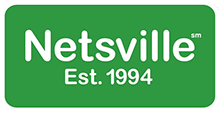One of the golden rules in any life venture is that it’s always good to have a backup plan. We have backups for our family pictures on external drives, coverage for our cars in case of an accident, and business insurance to protect from unforeseen disasters. Yet, with the ever-increasing dependency we have on our internet service (whether for school, business, or that all-important Facebook update), we have to ask ourselves what backups do we have if for any reason we are severed from web access? For a small business, for instance, internet failure can translate to a devastating loss in revenue or credibility. Yahoo News recently ran a story about the alarming state of America’s internet infrastructure and how some companies are taking measures to modernize it.
Hunter Newby describes himself as a real estate entrepreneur, even if he’s not marketing houses or land. Instead, he’s selling space on a new fiber-optic transmission line to Internet providers, telecommunications companies and anyone wanting high-speed data.
Newby is chief executive of Allied Fiber, a New York firm that is nearing completion of a broadband route from Miami to Atlanta. His long-range vision is to build a new fiber-optic loop around the entire U.S. that is physically distinct from existing Internet routes but connects to them.
Newby’s network is just one of the potential solutions to what experts describe as a lack of redundancy that makes the nation’s high-speed Internet highway vulnerable to outages if a fiber-optic cable gets cut or a key connection site gets damaged. That is particularly true in rural areas and smaller cities.
The article cites some examples of when this particular vulnerability has led to disaster.
Newby said the Internet “has numerous single points of failure all over the place.” His goal, he said, “is to create physical diversity” around those spots.
One of those weak points was exposed last month when vandals sliced a fiber-optic cable in the Arizona desert between Phoenix and Flagstaff, leaving some people and businesses without Internet service for up to 15 hours. There was no backup system.
Industry analysts say there are several ways around such problems:
— Companies can build a second fiber-optic transmission line between cities, allowing Internet traffic to be rerouted when one line goes down. But that could double the cost of extending service into a particular area.
— Networks can be designed with switches that reroute traffic along other existing routes. In one hypothetical scenario, Internet traffic from Phoenix could follow a detour to Los Angeles and Las Vegas to get to Flagstaff. But those alternative paths would need enough capacity to handle the suddenly enlarged load.
— A satellite or microwave system can be installed to serve as a backup to a fiber-optic cable between two places. But the service could be slower and a relatively expensive insurance policy.
Of course, this isn’t a problem that is found solely in America. In 2011, a Georgian woman was reported to have accidentally damaged a cable line while scavenging for copper inadvertently cutting off the entire country of Armenia from the internet. Regardless, it’s a disheartening position to be in considering that America paved the road to the world wide web. Our technology should, theoretically, be at the forefront of innovation in this field. Certainly easier said than done and the lack of competition between the major cable providers may have allowed for a certain stagnation, but it’s relieving to see some progress being made to reinforce connection security.
In Rochester, NY, we are lucky that we have services that feed off our redundant power grid, providing internet access “insurance.” Additionally, local companies such as NYSYS AirAccess provide divergent, or multiple, paths to their customers to maintain a constant, reliable internet connection rather than relying on old, outdated underground conduits that can be disrupted by acts of god, construction, and other factors. This is the exception to the standard in comparison to a majority of cities in the United States but it does set a proper precedent to aspire to.
Based in Rochester, New York, Netsville is an Internet Property Management company specializing in managing the Digital Marketing, Technical, and Business Solutions for our customers since 1994. For more information, please click here.






